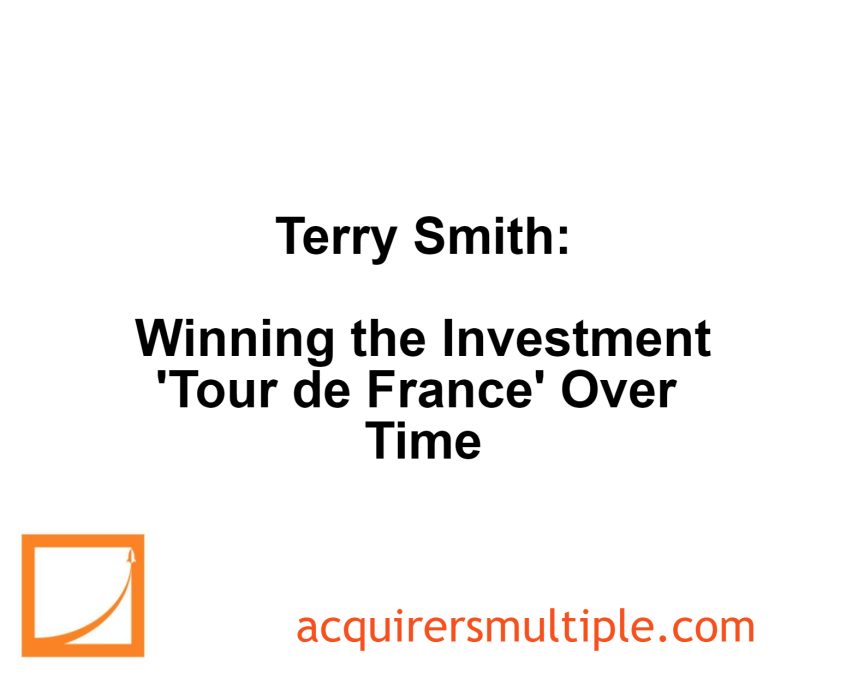In his 2012 Fundsmith Annual Letter, Terry Smith emphasizes that his investment strategy is not about outperforming in every reporting period or market condition but aiming to outperform the market and other funds over longer periods.
He draws an analogy with the Tour de France, highlighting the diverse stages that require different skills, similar to the varied market conditions. Investors should understand that consistent outperformance in all conditions is unrealistic, and the focus should be on long-term success rather than short-term fluctuations.
Here’s an excerpt from the letter:
It is also worth bearing in mind that we do not seek to outperform in every reporting period or in all market conditions, rather we seek to outperform the market and other funds over longer periods of time.
The analogy I use for this is the Tour de France, which topically was won by a British rider – the now ‘Sir’ Bradley Wiggins – for the first time in 2012. The Tour is the greatest of cycling Grand Tours, with 21 stages run over 23 days. In the 100 years since the Tour was first run, no rider has ever succeeded in winning every stage of a Tour. Nor in my view will anyone ever achieve this. This is because the Tour encompasses three distinct types of stage:
• the stages in which the riders form a peloton and riders can gain vital aerodynamic assistance by slipstreaming (or getting “a wheel”) from the rider(s) in front of them. A team can carry a sprinter (like Mark Cavendish) in the peloton and release him close to the line for the final sprint in an effort to win the stage;
• time trials in which the riders are released individually and so cannot gain any assistance from each other. In order to maximise their own aerodynamic efficiency, the riders use tri handlebars, wear skin suits and aerodynamic helmets and often have solid rear wheels and wide rims on the front wheel. This is a test of individual riding ability over the whole stage; and
• mountain stages which are run as a team but involve significant climbs unlike the main peloton stages which are much flatter.
A rider needs a very different physique to win as a sprinter to a time trialist or a mountain climber – compare Bradley Wiggins with Mark Cavendish – which is why no one can win all stages.
The rider who wins the Tour is likely to be one who excels at one discipline – Wiggins is a time trialist, the discipline in which he also won a Gold medal at the 2012 Olympics – and is not too bad at, and obtains help from his team with, the other stages. Indeed on two occasions, the Tour has been won by riders who did not win a single stage.
In my view there is a moral here for investors. What we are trying to achieve with Fundsmith is to win the investment equivalent of the Tour de France for you-to outperform over a long period of time. However, we do not expect to outperform all the time or in all markets conditions.
Rather our expectation is that we will perform relatively well in bear market conditions, and may struggle to keep pace in more bullish conditions, which is why I am surprised that we outperformed the market albeit modestly in 2012.
It is important that our investors recognise that this is what we are aiming for. Too often investors seek to find fund managers who can outperform all the time and in all market conditions. The trouble is that no such person exists.
But the attempt to find this mythical creature leads to some investors moving their assets between managers, incurring costs and most frequently ditching a manager who’s investment style is out of step with the current market in favour of one with recent good performance just as they are about to switch positions.
You can read the entire letter here:
Terry Smith – 2012 Fundsmith Annual Letter
For all the latest news and podcasts, join our free newsletter here.
Don’t forget to check out our FREE Large Cap 1000 – Stock Screener, here at The Acquirer’s Multiple:



